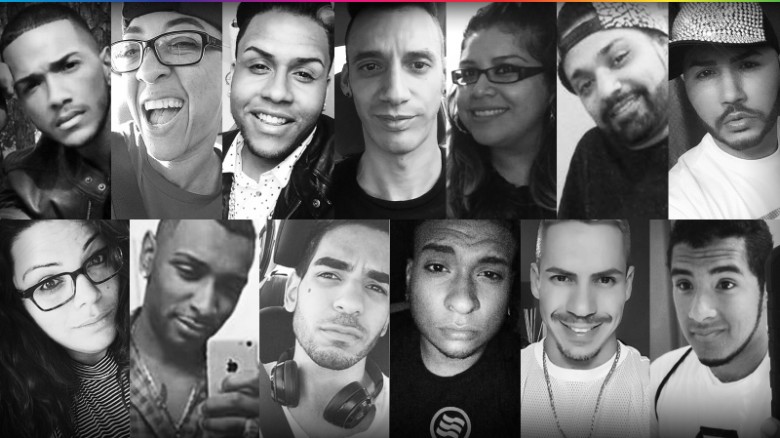The recent shooting at a gay nightclub in Orlando has been labeled the deadliest mass shooting in US history. It’s reported that the gunman killed 49 people and injured at least 53. Most Christians have responded to this tragedy with love and compassion for the victims and their families. Numerous churches and pastors have denounced the violence and are standing in solidarity with the LGBT community.
But as usual, the craziest and most extreme of any group is the loudest. Two pastors have made headlines for their remarks on the Orlando shooting. One says,
“The tragedy is that more of them didn’t die. I’m kind of upset that he [the shooter] didn’t finish the job!”
Another pastor says,
“I’m not sad about it; I’m not going to cry about it … the victims were going to die of AIDS and syphilis and whatever else; they were going to die early anyway … The bad news is that a lot of the homos in the bar are still alive.”
Please note that these pastors belong to small, independent churches with no oversight or accountability. These men are marginal in the church world, but their remarks are getting attention. They view the Orlando shooting as God’s judgment on homosexuality and they aren’t afraid to say so in the most abrasive ways. I’m sure other Christians have had similar thoughts. What are we to think of this?
When Christians hear about massacres or natural disasters, we are tempted to think that God is punishing sin. We know that God ultimately controls all things; he has a purpose for everything that comes to pass (Eph. 1:11). We also know that God will not be mocked; he does judge the wicked (Gal. 6:7). When tragedy strikes, then, we put these things together and conclude that God must be responding to some particular evil. Haiti’s earthquake was punishment for witchcraft, the Orlando shooting was punishment for homosexuality, and so on.
This way of thinking is dangerous, for it presumes upon the intentions of God. It pretends to know God’s will when God has not spoken. Certainly, the Scriptures describe God sending plague, drought, famine, and war upon the wicked. But these events are interpreted for us through divine revelation — current events are not.
Besides, to say that God sends ‘plague, drought, famine, and war upon the wicked’ is only half true. God sends plague, drought, famine, and war upon the righteous as well. Remember Job? He suffered great disaster. His friends thought God was punishing him, but they were wrong (Job 42:7-8). There are other examples, such as the Israelites being included in Egypt’s first three plagues (Ex. 8:22-23). It’s also true that God sends blessings upon the wicked (Mt. 5:45). Just as material abundance isn’t always a sign of God’s pleasure, so tragedy and disaster aren’t always signs of his displeasure.
What do we say when a church is gunned-down, as in Charleston last year? What about when faithful Christians lose their homes in natural disasters? When bad things happen to good people, we aren’t so eager to cast judgment. But when tragedy strikes a group of sinners, we become the mouthpiece of God’s wrath. We do this because we like to think of ourselves as better than others. “Thank God I don’t go to gay bars! They got what was coming to them.” This mentality is foolish and immature. Tragedy strikes at any time and to anyone. Jesus addresses this in Luke 13:4-5. Referring to a local incident, he says,
“Those eighteen on whom the tower in Siloam fell and killed them: do you think that they were worse offenders than all the others who lived in Jerusalem? No, I tell you; but unless you repent, you will all likewise perish.”
Your self-righteousness isn’t keeping you safe. Your sins are just as worthy of death as anyone else’s. Don’t think for one second that being a Christian exempts you from disaster, and don’t think it exempts you from extending mercy and charity to victims of violence — gay, straight, or otherwise. The victims of the Orlando shooting weren’t just gay, they were humans made in the image of God. They were sons and daughters with friends and jobs and talents and hobbies. Each life is complex; we can’t single out one aspect of a person and summarize them by that one characteristic.
We may not know all of God’s purposes in life, but here’s what we can say for sure: When tragedy strikes – no matter where or to whom – we should be driven to compassion for our fellow man, and we ought to reflect on our own lives. If Orlando tells us anything, it’s that life can vanish in an instant. These events should draw us closer to God, confessing sin and striving toward holiness. We do this not to exempt ourselves from tragedy nor to become self-righteous, but to run toward tragedy and lay down our lives for others.
Kuyperian Commentary denounces the shooting in Orlando as sinful and criminal. There is no justification for it and we take no delight in it. We pray for healing to the injured and comfort to the families of the victims.















